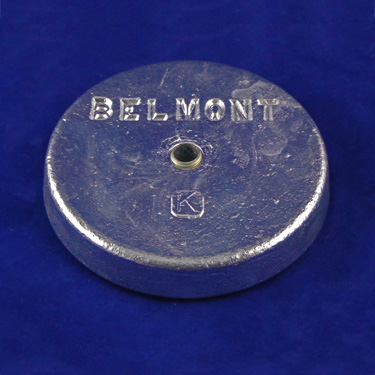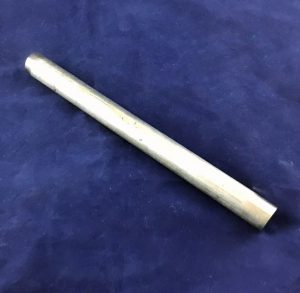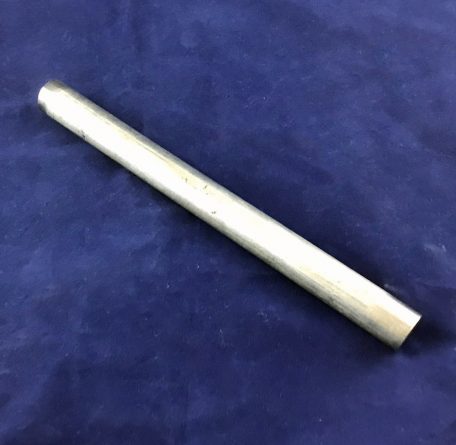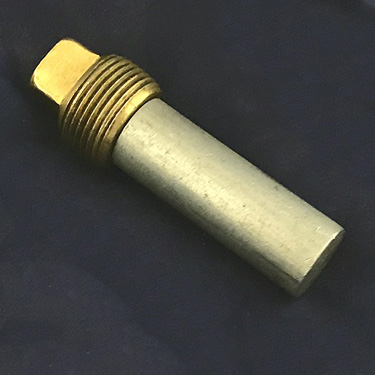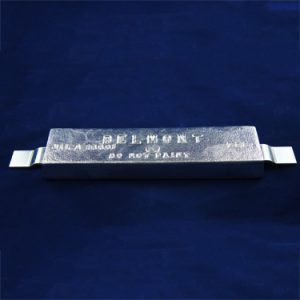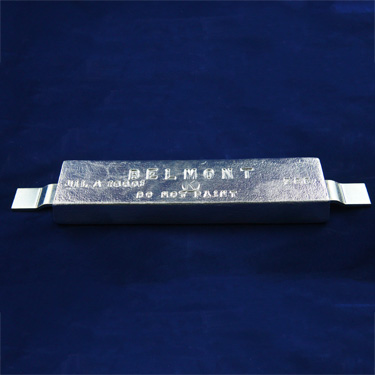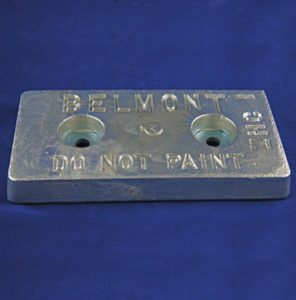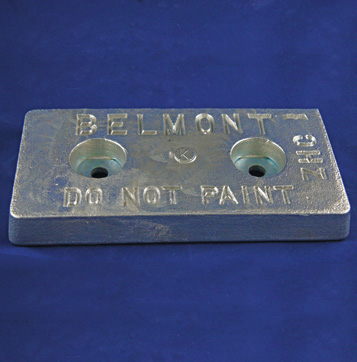Without engines and steering devices, boats cannot move through the water. This vital equipment must work efficiently for recreational and commercial use. However, the metal components used for the engine and as steering for the boat, such as the rudders, outboards, metal struts, stern drives and outboard fittings, can be damaged from the water. Galvanic…
|
Belmont manufactures style B round anodes for Cathodic Protection of steel hulls & tanks. Available with either 3/8″ or 1/2″ IPS. The 11″ piece has 2 3/4″ IPS. |
|
| Forms: |
|
|---|---|
| Belmont Product Code | 8001B |
| Nominal Composition: |
|
|---|
Related products
-
Available for welding or bolt on applications to meet most any requirements for Industrial use or for sale to US Government.
Forms: - 1-1/4" x 3" x 12" with 1 Steel Strap approx. 11.5 lbs
- 2 1/2" x 3 1/2" x 12" with 1 Steel Strap approx. 24 lbs
Belmont Product Code 8001ZSS Nominal Composition: - 99.55% Zn
- Bal
-
Available for welding or bolt on applications to meet most any requirements for Industrial use or for sale to US Government.
Forms: - 1-1/4" x 6" x 12" with Core Strap and 2 Recessed Holes (ZHC-23)
- 2 1/2" x 6" x 12" with Core Strap and 2 Recessed Holes (ZHC-42)
Belmont Product Code 8001ZHC Nominal Composition: - 99.55% Zn
- Bal
RELATED POSTS

Ship Protection: Zinc Cathodic Anodes Prevents Corrosion
When it comes to materials exposed to water, certain metals will corrode faster than others. This problem is serious for ships that are out in freshwater or saltwater environments. Iron metal is used extensively throughout a ship, from the hull’s body to mechanical equipment, as this material is the most corrosion-prone metal. Other metals also…

Marine Engine Protection: Zinc Rods and Engine Anodes Preventing Corrosion
When thinking about marine operations, whether used in commercial, private or military applications, we typically think about boats and ships traveling long distances across ocean waters. Yet there’s also a range of other structures and equipment that are used in maritime operations. Oil and gas offshore platforms, construction equipment, and materials handling equipment used to…

Keeping Vessels Seaworthy: Common Marine Anode Capabilities
Countless commercial and private operations encounter corrosive environmental elements on a daily basis. Ship vessels, tanks, pipelines, and platforms come in contact with seawater that can erode metal parts such as hulls, rudders, keels, heat exchangers and other components. Disrupting the electrical flow properties of the seawater that creates corrosion is essential to prolong the…

Sacrificial Anodes: Zinc Protecting Parts from Salt Water
Think about a corrosive substance that you deal with in your life. Most people will think about the rust on vehicles caused during the wintertime when road salt mixes with melting snow as it splashes onto the metal parts of their car. Now imagine dealing with saltwater on a daily basis when having maritime jobs…

Powerful protection
Zinc anodes can extend the useful life of metal parts Anyone who has spent time near beaches knows that metal items exposed to saltwater begin to rust quickly. Freshwater encourages oxidation, as well, but because saltwater is a good conductor, electrons move easily through it, accelerating the reactions that cause corrosion. Cathodic protection is one…

